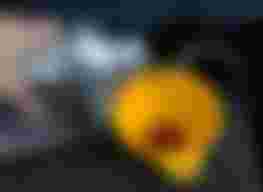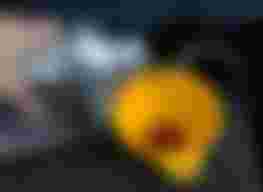Crude oil is a dark, sticky, viscous liquid found in underground deposits of many parts of the world. It is a mixture of organic compound called hydrocarbons containing Carbon and hydrogen . Crude oil is formed from the decay of plant and animal remains.
These organic remains are converted by the action of bacteria and pressure to crude oil, which are deposited underground, between rocks. Crude oil is an essential commodity in the world and can be refined to obtain useful chemical compounds.
Petroleum is derived from the Latin word "Petra" which means rock and 'oleum' which means oil.
The composition of petroleum petroleum varies according to its occurrence. Petroleum, in solid form, is called asphalt, in liquid form, crude oil and in gaseous form, natural gas. Petroleum also contains impurities such as Sulphur, nitrogen and oxygen. It is found in various countries over the world. Some of these countries are, United state, Saudi Arabia, India, Iraq, Nigeria and so many more.
Origin of Crude Oil
Crude oil originated from the organic remains of dead plants and animals. These organic remains settled on sea beds and over the years, have become covered with mud, silt and other sediments thereby converting them to hard sedimentary rocks. Bacteria activity, heat and pressure then converted the organic remains into petroleum and natural gas.
The oil and gas formed from the process is less dense and moves slowly through holes present in porous rocks around them and continues to seep upwards until they meet a non porous layer of rock and become trapped

Extraction of crude oil
Cruse oil regions are mapped by scientists called geologist. These scientists map the Rock layers and detect possible oil bearing areas. Crude oil is then extracted by drilling deep holes called wells into the ground. When a well reaches an oil bearing layer, petroleum and Gas shoot up into the air under high pressure. The crude oil is then pumped out and stored in large steel reservoirs, ready for refining process.

Refining of crude oil
The extracted crude oil is sent to refineries through the pipelines or tanker and stored in large steel tanks until is ready for refining where it is converted to useful fuels and Petrochemicals.
The refining process of crude oil occurs in three stages. These stages are separation conversion and purification.
Separation of crude oil fractions
Crude oil is a complex mixture of hydrocarbons which can be separated into its components or fractions by fractional distillation. The fractional distillation process is carried out in huge fractionating columns, or towers where the difference in the boiling points of the different crude oil fractions are used to separate the crude oil mixture into its components. A fraction of crude oil is a mixture of molecules of restricted boiling point range. They have similar number of carbon atoms and physical properties.

The distillation process is carried out by hearing crude oil to a high temperature. The crude oil to a high temperature. The crude oil changes to vapour and ascend the fractionating column. As the vapour ascends the column, it cools, condenses and separates into its fractions. Fractions with lower boiling points separate out the trays in the upper part of the column while fractions with higher boiling points separate out in the trays in the lower Part of the column.
Conversion
This is the second stage in the refining process. It involves the conversion of excess fractions that have less demand into fractions that are in high demand through processes such as catalytic and thermal cracking, polymerization and reforming. For example the demand for petrol is very high, since it's a major fuel for vehicles and engines while the demand for kerosene is lower than that of petrol. At the refinery, some unwanted kerosene fractions can be converted to petrol to increase the quantity of petrol in circulation.
Purification
This is the process of removing the impurities present in crude oil. Usually, the different fractions are drawn of at different heights on the column redistilled to improve purity and the further treated to obtain high quality fuels and Petrochemicals.
Petrochemicals
Petrochemicals are substances produced from the by-products of petroleum or natural gas. Crude oil fractions can be processed and treated to produce organic compounds which can be used for different industrial purposes. For example, cracking of petroleum(breaking down larger petroleum fractions into smaller petroleum fractions) produces ethene an organic molecules which is petrochemical used producing plastic. Other examples of petrochemical products are detergents, insecticides, nylon, dyes, polish, fertilizers, cosmetics, drugs etc.


Petrochemical products
On the basis of chemical structure, petrochemicals are categorised into three, namely Olefins, aromatic and synthesis gas.
Olefins: The major parts of olefus are ethylene and propylene. They are used in the preparation of several industrial chemicals and plastic products. Butadiene is also an example of olefin. It is used to prepare synthetic rubber.
Aromatics: Benzene, toluene and xylenes are the major components of aromatic chemicals. They are used in manufacturing of secondary products like synthetic detergents, polyurethane, plastic and synthetic fires.
Synthesis gas: The major parts of Synthesis gas are carbon monoxide and hydrogen which are basically used to produce ammonia and methanol.
Uses of Petrochemicals
Petrochemicals are used as a raw materials in various chemical industries for the production of various industrial products.
Carbon blackish, used in making ink, pigment, carbon paper.
Dyes for dyeing fabrics.
Food addictives.
Drugs such as aspirins.
Importance of Crude oil
Crude oil has improved the economy of many countries, the benefits of crude oil to the individuals and many countries.
Revenue generation : many countries make huge amounts of profit from the sale of crude oil and Petrochemical products.
Employment : the extraction, refining, sales of crude oil fractions, provide a lot of job opportunities to the literate and illiterate working class in a nation.
Energy production : Most petroleum fractions are used to fuel various electrical generators and are used by various industries around the world





Nice one good to know these facts on crude oil